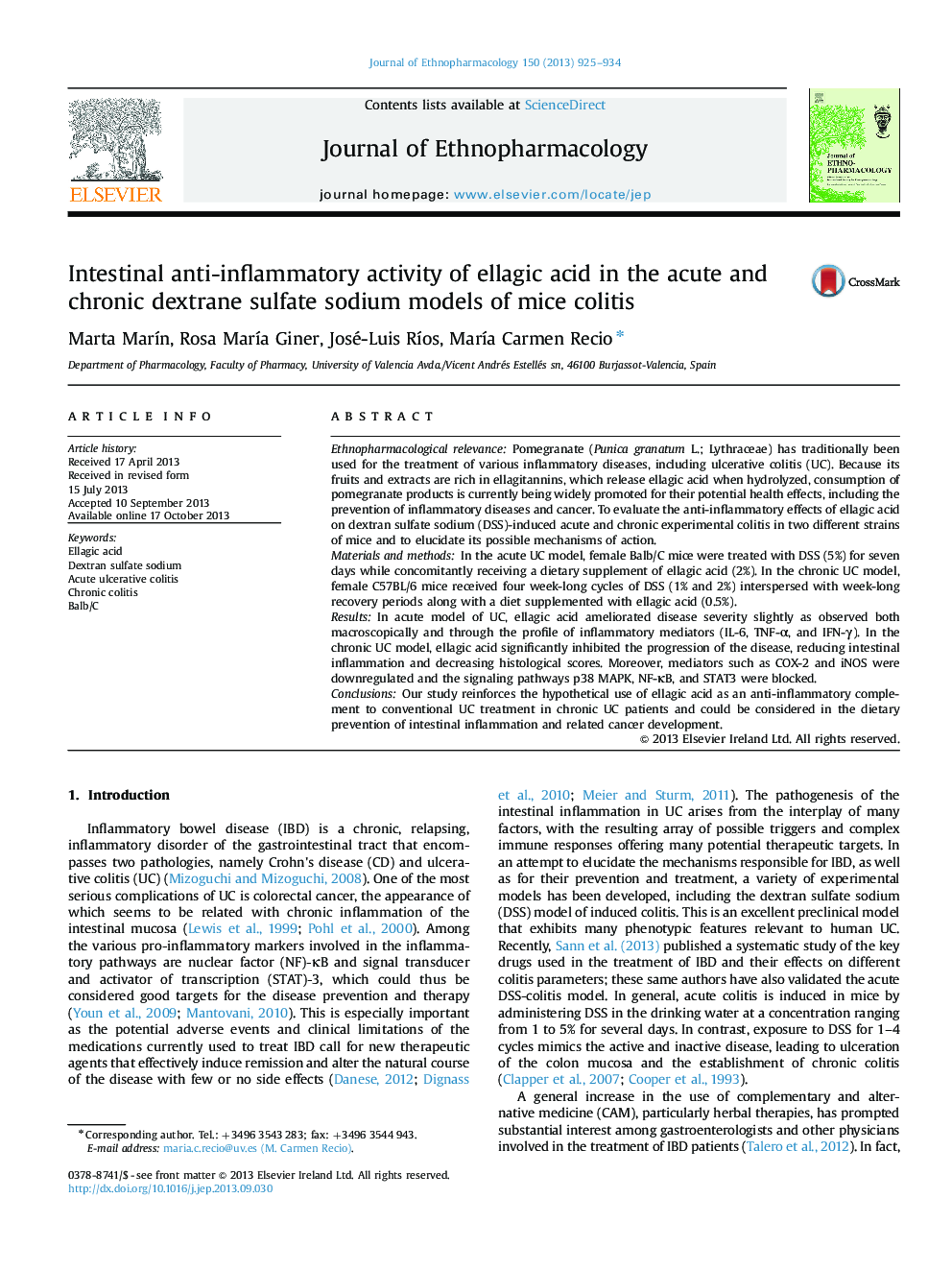| Article ID | Journal | Published Year | Pages | File Type |
|---|---|---|---|---|
| 2545332 | Journal of Ethnopharmacology | 2013 | 10 Pages |
Ethnopharmacological relevancePomegranate (Punica granatum L.; Lythraceae) has traditionally been used for the treatment of various inflammatory diseases, including ulcerative colitis (UC). Because its fruits and extracts are rich in ellagitannins, which release ellagic acid when hydrolyzed, consumption of pomegranate products is currently being widely promoted for their potential health effects, including the prevention of inflammatory diseases and cancer. To evaluate the anti-inflammatory effects of ellagic acid on dextran sulfate sodium (DSS)-induced acute and chronic experimental colitis in two different strains of mice and to elucidate its possible mechanisms of action.Materials and methodsIn the acute UC model, female Balb/C mice were treated with DSS (5%) for seven days while concomitantly receiving a dietary supplement of ellagic acid (2%). In the chronic UC model, female C57BL/6 mice received four week-long cycles of DSS (1% and 2%) interspersed with week-long recovery periods along with a diet supplemented with ellagic acid (0.5%).ResultsIn acute model of UC, ellagic acid ameliorated disease severity slightly as observed both macroscopically and through the profile of inflammatory mediators (IL-6, TNF-α, and IFN-γ). In the chronic UC model, ellagic acid significantly inhibited the progression of the disease, reducing intestinal inflammation and decreasing histological scores. Moreover, mediators such as COX-2 and iNOS were downregulated and the signaling pathways p38 MAPK, NF-κB, and STAT3 were blocked.ConclusionsOur study reinforces the hypothetical use of ellagic acid as an anti-inflammatory complement to conventional UC treatment in chronic UC patients and could be considered in the dietary prevention of intestinal inflammation and related cancer development.
Graphical abstractFigure optionsDownload full-size imageDownload high-quality image (191 K)Download as PowerPoint slide
